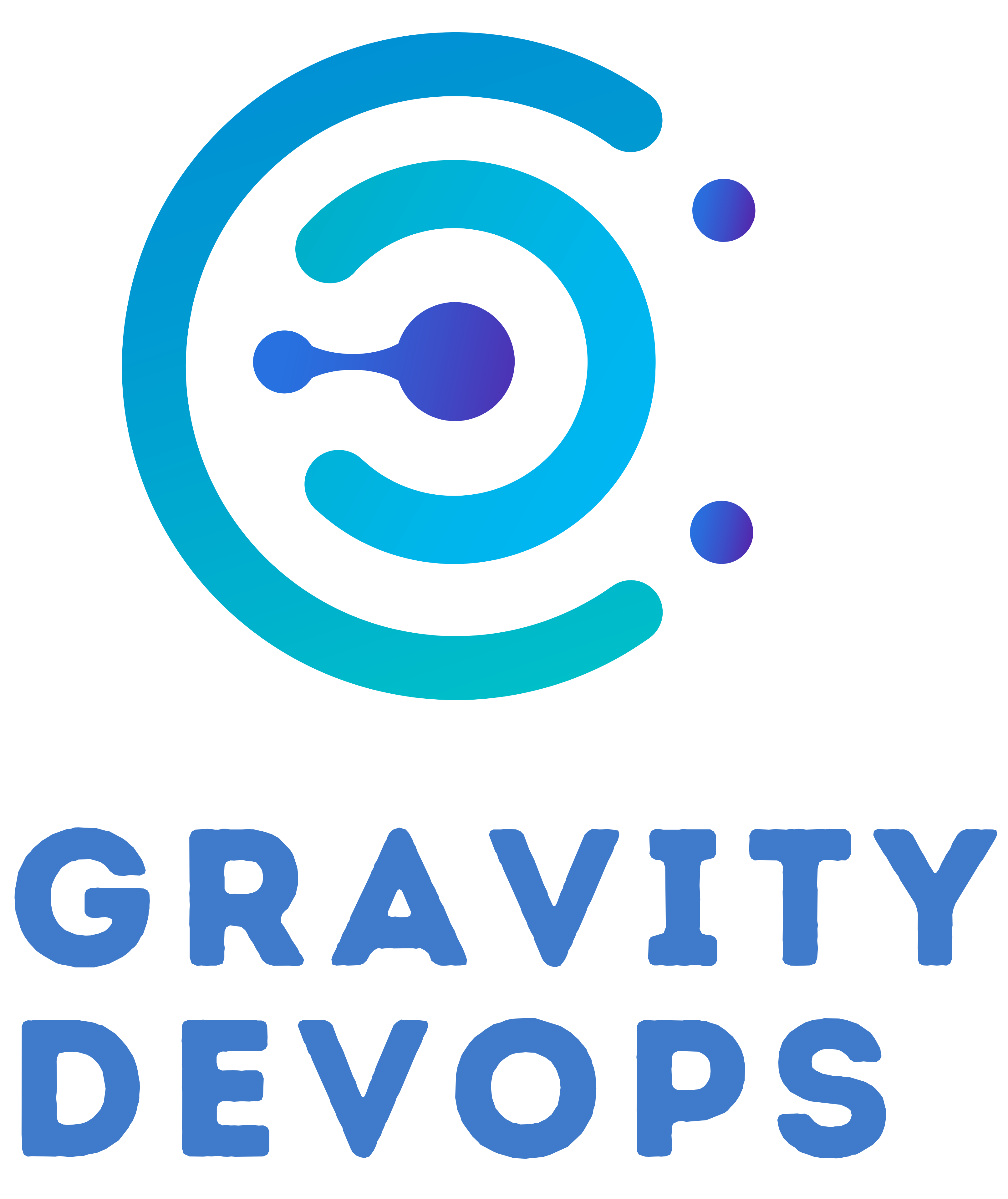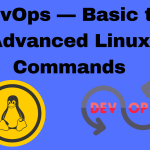Introduction to DevOps and SRE
What is DevOps?
DevOps, short for Development and Operations, is a collaborative approach that emphasizes communication and collaboration between software development and IT operations teams. This methodology aims to reduce friction and improve efficiency throughout the software development lifecycle.
What is Site Reliability Engineering (SRE)?
Site Reliability Engineering (SRE) is a discipline that combines software engineering and operations to build and maintain highly reliable, scalable, and efficient systems. SRE teams focus on ensuring the availability, performance, and resilience of services while also managing incidents and driving improvements.

Importance of DevOps and SRE in 2023
In 2023, DevOps and SRE will continue to play a crucial role in the tech industry. As organizations embrace digital transformation and rely heavily on software-based solutions, the need for agile development practices, seamless operations, and reliable systems becomes increasingly significant. DevOps and SRE provide the framework and best practices necessary to meet these demands effectively.
The Evolving Role of DevOps Engineers and SREs
Understanding the changing landscape of technology
The technology landscape is continuously evolving, with new tools, frameworks, and methodologies emerging regularly. DevOps engineers and SREs need to stay updated with the latest industry trends and developments to remain relevant and deliver optimal results.

Emerging trends in DevOps and SRE practices
2023 is expected to witness several emerging trends in DevOps and SRE practices. These include the adoption of serverless architectures, containerization using platforms like Kubernetes, and the integration of artificial intelligence and machine learning for automation and predictive analysis.
Skills required for a successful career in 2023
To excel as a DevOps engineer or SRE in 2023, a combination of technical and soft skills is essential. Technical skills include proficiency in programming languages like Python, Go, or Java, expertise in using version control systems such as Git, and familiarity with cloud computing platforms like AWS or Azure. Additionally, strong problem-solving, communication, and collaboration skills are vital for effective teamwork.
Devops Engineer Salary
Building a Strong Foundation

Mastering version control systems (e.g., Git)
Version control systems, such as Git, are indispensable tools for DevOps engineers and SREs. Git allows seamless collaboration, code review, and the ability to track changes made to software projects. Mastering Git, including its branching and merging strategies, is crucial for efficient team collaboration and maintaining a robust codebase.
Proficiency in cloud computing platforms (e.g., AWS, Azure)
Cloud computing platforms have transformed the way infrastructure is provisioned and managed. DevOps engineers and SREs must gain proficiency in popular platforms like AWS or Azure to operate and automate cloud resources effectively. This includes understanding cloud architecture, virtualization concepts, and familiarity with services like EC2, S3, and VPC.
Continuous Integration and Continuous Delivery (CI/CD)

Understanding the principles and benefits of CI/CD
Continuous Integration (CI) and Continuous Delivery (CD) are essential practices in DevOps that enable teams to deliver high-quality software more reliably and frequently. CI involves automatically integrating code changes into a shared repository and running tests, ensuring early bug detection. CD builds upon CI by automating the deployment and release process.
Tools for automating CI/CD pipelines (e.g., Jenkins, CircleCI)
Several tools facilitate the automation of CI/CD pipelines. Jenkins is a popular open-source automation server that allows teams to build, test, and deploy their applications. CircleCI is another option known for its simplicity and scalability, supporting Docker and Kubernetes orchestration.
Best practices for efficient CI/CD implementation
Efficient CI/CD implementation requires adherence to best practices. These include writing comprehensive tests to ensure code quality, using infrastructure as code techniques for repeatable and consistent deployment, and automating the testing and release processes. Additionally, implementing feature flags and canary deployments can minimize the risk associated with new releases.
Infrastructure as Code (IaC)
Introduction to IaC and its benefits
Infrastructure as Code (IaC) is an approach that allows infrastructure to be provisioned and managed through code rather than manually configuring hardware and software components. IaC offers several benefits, including increased deployment speed, scalability, consistency, and version control of infrastructure.
Popular IaC tools (e.g., Terraform, CloudFormation)
Terraform, an open-source tool developed by HashiCorp, is widely used for creating and managing infrastructure as code across various cloud providers. CloudFormation, an Amazon Web Services-specific service, offers a similar capability for AWS users. These tools enable the declarative definition of infrastructure resources and simplify the provisioning process.
Implementing IaC for scalable and automated infrastructure management
Implementing IaC involves defining infrastructure resources, dependencies, and configurations in code. By doing so, infrastructure becomes version-controlled and can be provisioned, modified, and destroyed using automation. As organizations strive for scalability and agility, IaC enables efficient infrastructure management, reduces human errors, and promotes reproducibility.
Configuration Management
Managing infrastructure configurations effectively
Configuration management involves effectively managing and maintaining the desired state of infrastructure components. It ensures that systems remain in a consistent and reliable state by automating configuration changes, tracking and auditing configuration drift, and enforcing desired configurations across multiple servers and environments.
Popular configuration management tools (e.g., Ansible, Puppet)
Configuration management tools, such as Ansible and Puppet, simplify the process of managing and automating infrastructure configurations. Ansible utilizes an agentless architecture and follows a declarative approach, making it easy to learn and use. Puppet, on the other hand, offers a powerful and scalable framework for managing configurations in complex environments.
Orchestrating and automating configuration changes
To facilitate efficient management, configuration changes should be orchestrated and automated. This involves defining configuration templates, applying them across multiple servers, and ensuring consistency through automated and repeatable processes. Orchestrating configuration changes reduces human errors, improves efficiency, and streamlines the management of complex infrastructures.
Monitoring and Observability
Importance of monitoring and observability in DevOps
Monitoring and observability are crucial components of DevOps, providing insight into the health, performance, and availability of systems. Proactively monitoring infrastructure and applications allows teams to detect issues early, troubleshoot efficiently, and optimize performance, thereby delivering a seamless user experience.
Implementing scalable monitoring solutions (e.g., Prometheus, Datadog)
Implementing scalable monitoring solutions is essential to manage complex and distributed systems. Prometheus, an open-source monitoring toolkit, offers powerful metric collection and querying capabilities. Datadog, a cloud-based monitoring platform, provides comprehensive monitoring, alerting, and visualization features, supporting various cloud and on-premises environments.
Analyzing metrics and logs for troubleshooting and improvement
Analyzing metrics and logs helps teams understand system behavior, identify bottlenecks, and troubleshoot issues effectively. DevOps engineers and SREs utilize data-driven insights to optimize performance, enhance system reliability, and make informed decisions to improve the overall user experience.
Incident Management and Reliability Engineering
Understanding incident response and management
Incident response and management are critical aspects of maintaining system reliability. DevOps engineers and SREs must be well-versed in incident response processes, including identifying and categorizing incidents, creating incident response playbooks, and conducting post-incident reviews to learn from failures and prevent future incidents.
Implementing reliability engineering practices
Reliability engineering focuses on designing and operating systems that are highly available, scalable, and resilient. Implementing reliability engineering practices involves conducting failure mode analysis, establishing service level objectives (SLOs), and implementing proactive measures to improve system reliability and reduce downtime.
Building resilient systems for minimizing downtime
DevOps engineers and SREs strive to build resilient systems that can withstand failures and minimize downtime. This involves designing for fault tolerance, implementing backup and disaster recovery mechanisms, and ensuring redundancy across critical components. Resilient systems can recover quickly, maintain service availability, and provide a seamless user experience even during adverse conditions.
Security in DevOps and SRE
Integrating security practices throughout the development lifecycle
Security is a critical aspect of DevOps and SRE. Integrating security practices throughout the development lifecycle involves implementing secure coding standards, performing regular vulnerability assessments and penetration testing, and ensuring secure configuration management and access controls. DevOps and SRE teams collaborate with security professionals to address vulnerabilities and mitigate risks.
Tools and techniques for ensuring system security
Numerous tools and techniques support ensuring system security in a DevOps and SRE environment. Security scanning tools like SonarQube and Snyk can detect code vulnerabilities, while tools like Vault help manage secrets and sensitive data securely. Additionally, techniques such as infrastructure hardening, regular patching, and security incident response planning contribute to maintaining robust system security.
Securing infrastructure and applications against threats
Securing infrastructure and applications involves implementing safeguards against security threats. DevOps engineers and SREs ensure secure network configurations, employ encryption for data in transit and at rest, and implement identity and access management solutions to control user permissions effectively. Regular monitoring and timely security updates are essential to identify and address vulnerabilities promptly.
Scaling and Automation
Strategies for efficient resource scaling
Efficient resource scaling is crucial to accommodate increasing workloads and maintain performance. Horizontal scaling, achieved by adding more servers or instances, and vertical scaling, increasing the resources of existing servers or instances, are popular strategies for managing scale. Autoscaling, where resources adjust automatically based on demand, is also widely utilized for reliable and cost-effective operations.
Leveraging automation for repetitive tasks
Automation plays a vital role in DevOps and SRE, enabling teams to focus on more critical tasks. DevOps engineers and SREs leverage automation tools and frameworks such as Ansible, Chef, and Puppet to streamline repetitive tasks like deployment, provisioning, and configuration management. By automating these processes, teams save time, reduce errors, and enhance efficiency.
Handling increased workloads and high availability
Scaling to handle increased workloads and maintaining high availability are essential aspects of DevOps and SRE. Adopting load balancing strategies, deploying scalable architectures like microservices, and implementing redundancy and failover mechanisms ensure efficient load distribution and resilience against failures. High availability ensures uninterrupted service delivery, allowing organizations to meet customer expectations and avoid revenue loss.
The Role of Artificial Intelligence (AI) and Machine Learning (ML)
The impact of AI and ML on DevOps and SRE practices
AI and ML are revolutionizing DevOps and SRE practices. These technologies enable automation, predictive analysis, and anomaly detection, facilitating faster and more accurate decision-making. AI and ML techniques can optimize resource allocation, improve incident response, and enhance system performance, thereby empowering DevOps teams to become more efficient and proactive.
Automation and predictive analysis using AI/ML techniques
AI and ML techniques enable automation and predictive analysis in various DevOps and SRE areas. Predictive metrics analysis can help identify potential issues in advance, allowing proactive mitigation. Anomaly detection algorithms can automatically detect unusual patterns, enabling early incident and anomaly detection. Additionally, intelligent chatbots and virtual assistants equipped with ML capabilities can assist in providing real-time support and accelerating incident resolution.
Future Trends and Technological Advancements
Predictions for the future of DevOps and SRE roles
The future of DevOps and SRE roles promises continued growth and evolution. DevOps is likely to expand beyond development and operations, integrating other functions like security and business teams. SRE will become more specialized, focusing on specific areas like chaos engineering or resilience engineering. Additionally, the increasing adoption of edge computing and serverless architectures will shape the landscape of these roles.

Incorporating emerging technologies into DevOps practices
As emerging technologies gain momentum, embracing them becomes crucial for DevOps engineers and SREs. Technologies like blockchain, quantum computing, and edge computing offer unique challenges and opportunities. Incorporating these emerging technologies into DevOps practices will require continuous learning, adaptation, and innovative problem-solving.
Summary
In this comprehensive guide, we explored the ultimate roadmap for aspiring DevOps engineers and SREs in 2023. We covered the fundamental concepts of DevOps and SRE, examined the evolving role of these professionals, and delved into key skills and technologies necessary for a successful career in the field. We discussed topics such as CI/CD, infrastructure as code, configuration management, monitoring and observability, incident management, security, scaling and automation, the role of AI/ML, future trends, and the importance of keeping up with the evolving DevOps and SRE practices.
Frequently Asked Questions (FAQs)
What background or skills are required to become a DevOps Engineer or SRE?
Becoming a DevOps engineer or SRE requires a solid foundation in software development, systems administration, and a deep understanding of cloud computing technologies. Proficiency in programming languages, familiarity with infrastructure-as-code tools, and experience with automation frameworks are highly desirable.
Is certification necessary for a career in DevOps and SRE?
While certifications can provide credibility and validate skills, they are not mandatory for a career in DevOps and SRE. Practical experience, hands-on projects, and continuous learning through real-world scenarios and industry best practices are equally valuable in building a successful career.
How can I gain practical experience in DevOps and SRE practices?
Gaining practical experience in DevOps and SRE practices involves actively engaging in hands-on projects, contributing to open-source communities, and participating in hackathons or coding challenges. Building personal projects and working on internship opportunities or entry-level positions can also provide valuable exposure to real-world scenarios.
What are some recommended resources for further learning?
For further learning, there are various resources available, including online courses, books, and documentation. Online learning platforms like Udemy, Coursera, and LinkedIn Learning offer comprehensive courses on DevOps-related topics. Books such as “The Phoenix Project” and “Site Reliability Engineering” provide valuable insights. Official documentation from cloud service providers and popular tools can also serve as excellent references.
How does the DevOps and SRE landscape differ in various industries?
The DevOps and SRE landscape can differ across industries based on factors such as business models, regulatory requirements, and scale. Industries like technology or e-commerce may have more mature DevOps practices, while regulated industries like healthcare or finance require additional considerations for compliance and security.
What challenges can arise when implementing DevOps and SRE practices?
Implementing DevOps and SRE practices can face challenges such as resistance to change, lack of collaboration between teams, and a complex existing infrastructure. Additionally, adopting new tools and technologies might require a learning curve, and balancing speed with quality can pose operational challenges.



